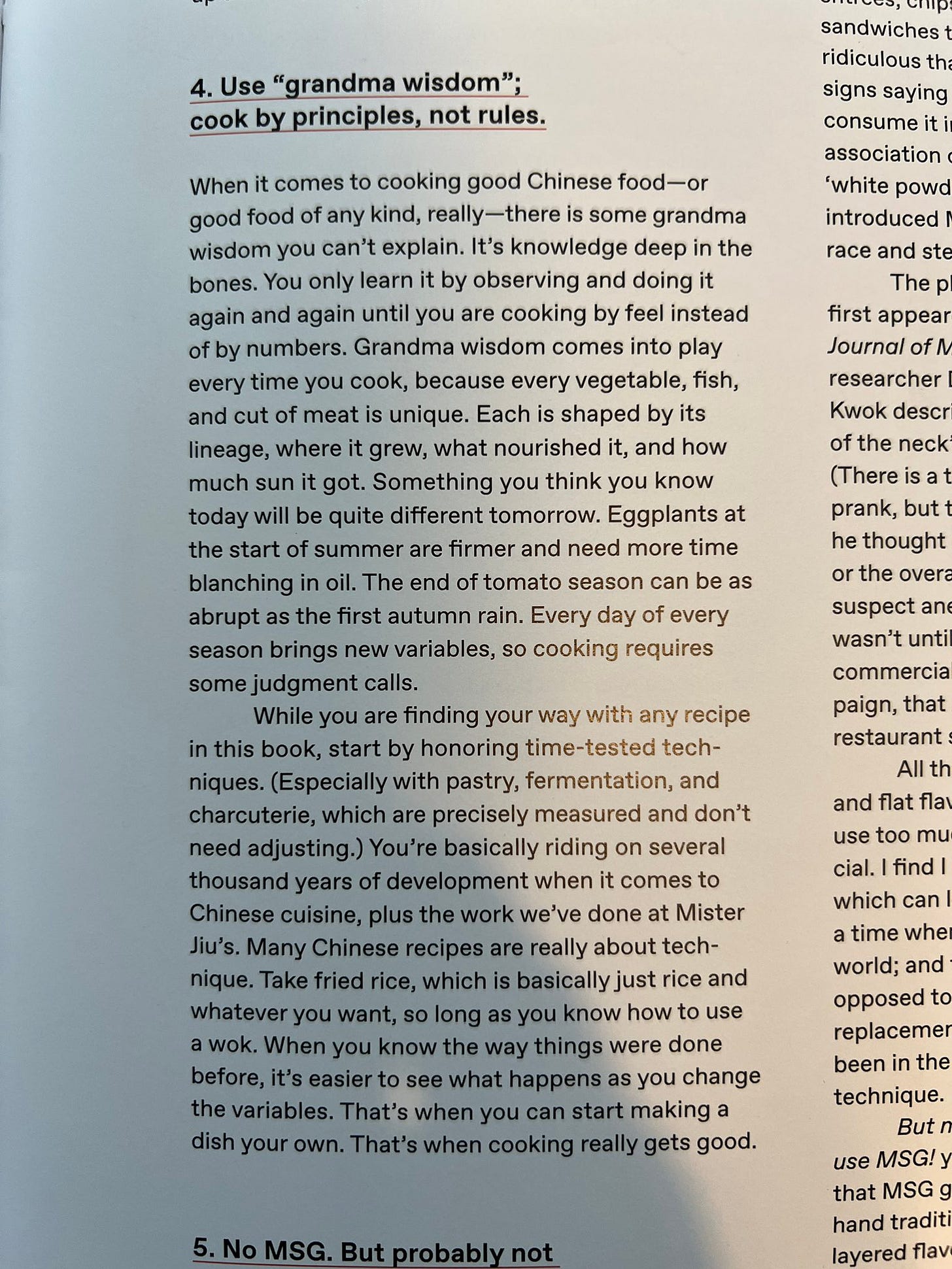Hey, everyone!
I hope you’re all having a wonderful start to your year and enjoying the content thus far. I love these round-up posts because they give me an opportunity to share a bunch of things I’m finding, thinking about, and cooking. I hope you like reading them as much as I enjoy writing them.
If you’ve got any questions, never hesitate to shoot me an email!
Myles
Wild Yeast Maximalism
I’ve recently (somewhat jokingly) begun referring to myself as a wild yeast maximalist.
The more I explore fermentation (especially through the lens of sourdough), the more I’m drawn to the idea of wild-fermented foods.
So many of the fermented foods we eat today— beer, wine, yogurt, bread, cheese, and more— are made using commercial (industrial) yeast. What does this mean, exactly? It means that rather than going through the process of wild fermentation, where naturally occuring bacteria and yeast in the environment are allowed to proliferate, they use an industrially-manufactured alternative. These commercial yeasts are often just one or two strains that have been bred in a lab environment, usually made by giant conglomerates like Chr Hansen. These yeasts are dried and covered in dead yeast cells to allow them to preserve and transport. Commercial yeasts are preferred by industrial manufacturers because they offer predictability and consistency, but they come at the expense of both health and flavor.
Historically, all fermented foods were wild fermented. This meant that everything was a unique product of its local terroir, and consuming those products meant consuming a huge variety of biodiverse bacteria and yeasts. I can’t help but think that shifting towards what is essentially a monocultured, industrial alternative to these things has had profound effects on our health.
The solution isn’t easy, but it’s one I’m attempting to move towards— either fermenting my own products at home the old-fashioned way or seeking them out from small-batch producers who do the same. Not only are these products healthier, but they’re usually far more unique and delicious due to the natural fermentation that occurs.
Athena Skillets



I recently picked up one of these insanely gorgeous hand-forged carbon steel skillets from Athena Skillets in Virginia. These aren’t cheap, but they’re heirloom-quality pieces that I plan to have in my family for generations. I’ve been cooking on this non-stop since I got it. The weight, balance, feel, and performance are amazing. And I love supporting cool artisans like Yates (who literally makes all of these himself, by hand).
An Olive Oil Masterclass
I recently came across this podcast with Tony Kasandrinos, the owner of Kasandrinos Olive Oil. It’s almost two hours long and is jam-packed with information about all things olive oil. I thought I knew a lot about olive oil going into it, but I learned a ton from this episode.
Grandma Wisdom
I loved this quote from the excellent cookbook “Mister Jiu’s in Chinatown” by Brandon Jew.
Peak Earth Podcast
In December I got to join my friend Case Bradford on his podcast Peak Earth. Case is a super cool guy (and an excellent Twitter follow), and I had a blast chatting with him. We talked a lot about my background as a chef, cooking professionally in Tulum, open fire cooking, food quality, and a bunch more.
Searching for Italy
Recently on a plane I came across Stanley Tucci’s new series Searching for Italy.
It’s a food travel show exploring regional cuisine in Italy— meaning it’s super up my alley. I enjoyed it a ton, and it’s making me realize more and more that a trip to Italy is in order ASAP.
A Quote I’m Pondering
“The object isn’t to make art, it’s to be in that wonderful state which makes art inevitable.” - Robert Henri
Rick Rubin shared this quote in a great interview he did with Tim Ferriss. I especially enjoyed the part (about 44 min in) where he talks about the difference between a craftsperson and an artist. Rick Rubin is obviously a music man, but I find that a lot of his wisdom on creativity can be applied to cooking, as well. I’m looking forward to reading his book this year.







Subbed from Paul Millerd
Do you recommend the Athena or Smithey Carbon Steel skillet?